Gift Ojeabulu is a data scientist with a passion for machine learning, particularly in sports analytics and developer relations. Currently, he’s wearing multiple hats in the ML space, as an AI/ML Developer Relations at Iterative.ai.
Gift’s background includes experience as a Sports Data Scientist at CBB Analytics with a focus on basketball analytics, which fuels his enthusiasm for the intersection of data and sports.
In this exclusive conversation, Gift Ojeabulu shares his fervent dedication to building data communities and driving innovation across Africa. He discusses his multifaceted career as a data scientist, emphasizing his commitment to integrating machine learning with practical applications.
Can we get to know you?
I’m a data scientist with experience and passion for machine learning, particularly in sports analytics and developer relations. Currently, I’m wearing multiple hats in the ML space, as an AI/ML Developer Relations and Community Engagement Strategist at Iterative.ai and Lead AI Technical Writer at Two Lions.
My background includes experience as a Sports Data Scientist at CBB Analytics with a focus on basketball analytics, which fuels my enthusiasm for the intersection of data and sports.
As a co-founder of Data Community Africa, a board member at DevNetwork, and AWS Community Builder in Machine Learning I’m deeply committed to building data communities and driving innovation. I also lead the MLOps community in Lagos, focusing on practical applications of machine learning and language model operations. I’m always seeking new challenges and opportunities to learn, embodying the spirit of a lifelong learner.
Standing at 6’7″, I quite literally stand out in a crowd. When I’m not immersed in data, community, and code, you might find me expressing my creative side through singing, rapping, drumming, writing, or dancing. These artistic pursuits not only keep me balanced but also enhance my critical thinking skills.
As a passionate Manchester United fan, I love watching football and analyzing the beautiful game through both a fan’s and a data scientist’s lens.
In essence, I’m a tall, tech-savvy, sports-loving creative who’s always eager to tackle the next big challenge in the world of Data and AI.
Tea or Coffee? Which one gets you up and running in the morning?
While most people might reach for tea or coffee, my mornings are more about balance and preparation. I start with water and some exercise, followed by reading ‘Open Heavens’ and the Bible (You version) to center myself. Then, I take time to plan my day by listening to 1/2 inspirational podcasts mostly by Jim Rohn or Brain Tracy, and also write down tasks for three key areas: my work, community involvement, and personal life. This routine helps me stay focused, A combination of physical, mental, and spiritual practices gets me energized and focused for the day ahead.
Can you tell us about your journey in tech so far?
My tech journey has been diverse and driven by curiosity and passion for learning. Initially studying Biochemistry, I switched to Computer Science, where I met Rising Odegua, who influenced my exploration of tech. I was motivated not by financial gain but by the thrill of creating—from building websites to developing Android apps. This excitement led me to focus on data science and AI/ML.
I started as a generalist, exploring fields like Networking, Web Development, and Android Development before settling on data science in 2019. This broad experience has deepened my appreciation for technology’s problem-solving power.
Currently, I am a Data Scientist specializing in machine learning for sports analytics and developer relations. I co-founded Data Community Africa, serve on the DevNetwork Advisory board, and work as an AI/ML Developer Relations and Community Engagement Strategist at Iterative.ai.
I’m dedicated to community empowerment, leading initiatives like the African Data Community Newsletter, which reaches over 2.2k subscribers across Africa, the US, and beyond. I advocate for open-source AI tools and lead the MLOps community in Lagos, focusing on practical machine learning applications.
My journey is one of continuous learning and growth, aimed at advancing data and AI capabilities in Africa and beyond. I look forward to leveraging my experiences to further strengthen tech communities and push the boundaries of technology.
Did you have any role models or mentors who influenced your career path?
Yes, I had a close friend named Rising Odegua, still my close friend though, who has been more of a role model than a mentor at this point. At a stage, he was the only tech person I knew, and he opened my eyes to the possibilities within the tech field and how it can transform lives and create impact. Rising introduced me to the importance of having a presence on platforms like GitHub, Medium, LinkedIn, and even Twitter, as well as outside just isolating yourself, learning, and coding—areas I hadn’t explored before.
My first tech event was GDG DevFest Lagos in 2018, and Rising’s participation inspired me to research and register for it. Before then, I was isolated, learning on my own without realizing there were tech events or a broader community.
Interestingly, I used to think Twitter was just for banter and clout. It was through observing Rising that I learned about the value of these platforms and how to use them effectively. He also shared a full stack web development course from Udemy in 2017 with me and made me know about the Andela and Udacity Android Nanodegree course further expanding my tech horizons.
At the moment I have several role models from Africa and mostly the US, the likes of Karim Beguir, Jade Abbott, Mikiko Bazeley, Merve Noyan, Prince Canuma, and so on.
If you could magically solve one major problem in the tech industry with a single click, what would it be?
I would focus on providing equal access to global opportunities for underrepresented groups in tech, such as Black individuals and women. Specifically, I would address the disparities faced by Africans in the tech industry.
There’s a recurring sentiment on Twitter that the “A” in EMEA (Europe, the Middle East, and Africa) is often silent, and I can confirm this. Despite meeting job requirements 100% and having access to well-paying opportunities, I’ve faced challenges due to my location.
Additionally, removing the stress and delays associated with obtaining a Nigerian visa to access other countries would be crucial.
Talent is global, but opportunities are not.
Creating a system that bridges this gap would make a significant difference—a revolution, especially for Nigerian tech professionals.
What are the key considerations when selecting the right algorithm for a data problem?
When selecting the right algorithm for a data problem, several important factors come into play, including the problem type, domain knowledge, data quality, computational resources, performance metrics, deployment environment, etc
Here are some questions to consider.
1. Problem Type:
– Is it a supervised, unsupervised, or reinforcement learning problem? Understanding the nature of your problem is the first step in narrowing down your choices.
2. Features and Data:
– What are the characteristics of your data in terms of size, quality, and type? Are the features numerical, categorical, images, text, or a mix? The nature of the data can influence which algorithms are most effective. For example, some algorithms perform well with smaller datasets (e.g., KNN, Naive Bayes, SVM), while others excel with larger datasets (e.g., Random Forest, XGBoost, LightGBM, CatBoost).
3. Model Interpretability:
– Do you need to explain the model’s decisions? If model interpretability is important, algorithms like decision trees, logistic regression, or linear models might be more suitable than complex models like neural networks or ensemble methods.
4. Computational and Memory Constraints:
– What are your system’s computational resources and memory limitations? Some algorithms are more resource-intensive than others, and this can influence your choice depending on the available infrastructure.
5. Bias-Variance Tradeoff:
– How do you balance the bias-variance tradeoff? Depending on the complexity of the data, you may need to decide between simpler models with higher bias (e.g., linear models) or more complex models with lower bias but higher variance (e.g., deep learning models).
6. Stakeholder Requirements:
– Do stakeholders require models that are easy to understand, or is predictive performance the primary focus? Models like decision trees or logistic regression are often preferred in cases where transparency is critical.
7. Integration and Deployment:
– How will the algorithm be integrated into existing systems? It’s important to consider the deployment environment and ensure the selected algorithm can be effectively implemented within those constraints.
8. Fairness and Ethics:
– Does the algorithm unintentionally discriminate against protected groups? It’s crucial to evaluate whether your model is fair and unbiased to ensure ethical AI practices.
By answering these questions, you can better align your algorithm selection with the specific needs of your data problem and organizational goals.
As a three-time AWS Community Builder in Mchine Learning, what have been the most rewarding aspects of your involvement with the AWS community?
The most rewarding aspects of my involvement have been:
- Continuous skill enhancement: The program’s resources and challenges have motivated me to constantly upskill, exploring new AWS services and use cases I might not have encountered otherwise.
- Educational benefits: Access to AWS credits and cloud certifications has significantly boosted my learning journey and professional development.
- Vibrant networking opportunities: Building connections with fellow Community Builders, AWS employees, heroes and community members across EMEA has opened doors to valuable collaborations, mentorship opportunities, and friendships that extend beyond technical discussions.
- Opportunity to apply for AWS All Builders Welcome Grant: Attend AWS re:Invent for Free For technologists in the first five years of their career when you get accepted you get Complete free entry pass, 5-day accommodation in a hotel, Flight, Dedicated events and mentor support, etc
What motivated you to co-found DataFestAfrica, and what have been some of the most rewarding experiences?
My motivation to co-found Data Community Africa (D.C.A) and its flagship conference, DatafestAfrica, stems from a deep-rooted passion for advocating for underrepresented voices in the data and AI space, particularly those from Africa. Initially, I started writing the African Data Community Newsletter on the Getrevue platform, which I later transitioned to Substack. The newsletter aimed to highlight the achievements of Africans in the data and AI fields, including open-source projects, articles, YouTube videos, startups, remote job opportunities, and various events like conferences and hackathons.
In summary, Through this initiative, the aim of the newsletter was to increase recognition for African professionals in the global data and AI community.
While speaking at various tech conferences, a recurring challenge emerged: data-related topics often received low engagement, and attendees frequently lacked a basic understanding of machine learning concepts. This necessitated starting presentations from rudimentary levels, which was both disappointing and stressful for speakers and attendees alike. The lack of engagement and understanding in these areas was a major frustration for me.
One day, after a particularly challenging conference, attendees suggested the need for a large-scale conference dedicated to the data community. During a conversation with Aniedi and Rising at Sustain Africa, I expressed my belief that such a conference would become a reality soon. Inspired by this discussion with Rising, my newsletter, the emotion that data-related topics often received low engagement, and attendees frequently lacked the basic understanding of machine learning concepts, and my active presence on Twitter, I tweeted about the possibility of organizing a major conference for the data community.
The tweet garnered significant attention, and the community’s enthusiastic response motivated us to move forward. With overwhelming support, a team was swiftly assembled, including co-founder and core team members like Olarenwaju Ooyinbooke, David Abu, Ayodele Oluleye, Opeyemi Fabiyi, Omowonuola, etc. Fundraising efforts were initiated, and the brand and website were developed, we had intentional support from companies like DBT, Iterative AI, Microsoft, Data Culture, Knime, Acronis, and so on. The inaugural DatafestAfrica conference exceeded expectations, attracting approximately 1,000 attendees. This success propelled the event’s growth, evolving into a full-fledged non-profit organization.

What impact do you hope DataFestAfrica has on the data science community in Africa?
Data Community Africa is not just limited to data science, So far, I envision Data Community Africa becoming a catalyst for a thriving and inclusive Data and AI ecosystem in Africa.
Education: “We’ve partnered with platforms like DataCamp to provide free learning resources across 25+ African countries, ensuring 300 learners invested over 14,000 hours mastering critical data skills. Thanks to our community champions like Tobi and Tina for helping us lead this.
Career Growth: Through our events and initiatives, we’ve facilitated local and international job opportunities, helping over 10 individuals secure roles across data analysis, data engineering, ML, and AI.
Skill Development and Empowerment: Our hackathons focused on real-world problem-solving in data analysis, machine learning, and AI have upskilled participants and promoted hands-on experience and monetary rewards for over 3,600 dollars.
Continental Reach: We’ve impacted 15+ African countries with over 5,500 in-person and virtual attendees at our events, creating a strong Pan-African network for data enthusiasts.
Looking ahead, I envision D.C.A establishing a platform where African researchers can showcase their groundbreaking AI research, collaborate with the government in building datasets, gain international recognition, and access vital funding. This will not only elevate the continent’s presence in AI but also bring more African perspectives into global AI discussions, We aim to actively support the African tech community in contributing to open-source AI projects, encouraging collaboration and innovation. By encouraging developers to engage in global open-source projects, we can increase Africa’s visibility in the global Data and AI community.

Ultimately, the goal of D.C.A is to create a sustainable ecosystem that nurtures African talent, drives innovation, and positions Africa as a key player in the global Data and AI landscape. We are not only promoting growth today but also laying the groundwork for future generations of African data scientists, engineers, and AI innovators.
What’s a common misconception people have about data science that you find amusing?
Many people believe that to be successful in data science, one must be a mathematical genius with advanced skills in calculus, linear algebra, and statistics. While a strong math foundation is beneficial, the level of mathematical expertise required for many data science roles is often overstated due to ongoing advancements in abstraction.
In reality, modern data scientists need a solid understanding of software engineering, problem framing, result interpretation, and communication skills, which can be as crucial as advanced math. Strong programming skills, domain knowledge, and practical problem-solving are equally important in day-to-day work.
Another common misconception is that Large Language Models (LLMs) like GPT can completely replace traditional knowledge bases or search engines. While LLMs are powerful and improving, they have limitations such as outdated training data and the inability to access real-time information from the web. This can lead to issues with data quality and reliability. The tendency for LLMs to generate inaccurate or “hallucinated” information underscores the need for data validation and careful fact-checking to avoid misinformation.
If you could go back in time and give your younger self one piece of career advice, what would it be?
Show up, Be Consistent, document your progress and learnings, and don’t stop learning.
Every moment matters, create a picture of that memory of every stage you are in your career, it is a process, it will all make sense someday
I have explored different careers so I wish I document and shared everything I did before I transitioned.
If you could instantly master any other tech skill or role, what would it be and why?
I would choose to master either data engineering or technical product management. Although I already have some experience in both areas, I want to deepen my expertise over time.
For data engineering, I’m attracted to its practical, skill-driven nature. Unlike data science, which often requires advanced degrees, data engineering focuses on hands-on abilities. The impact of data engineering work is more measurable, with clear tasks such as ETL processes, building data pipelines, and managing data infrastructure. These tasks have defined deliverables and make it easier to track progress.
On the other hand, data science roles can be more ambiguous and vary widely between companies, often overlapping with data engineering, analysis, machine learning, DevOps, and software engineering.
In terms of product management, I’m interested in roles like Data Product Manager, Product Data Scientist, or Product Analyst. Product management shares similarities with both DevRel (my current role) and data science (my previous role). For instance, product management involves understanding user needs, prioritizing features, and creating feedback loops, similar to DevRel. It also intersects with data science through data-driven decision-making, A/B testing, user behavior analysis, and predictive modeling.
This overlap provides a strong foundation for transitioning into product management, especially within the data or software engineering space. Mastering these skills could enable me to blend my background in DevRel and data science with product management, allowing me to make a significant impact.
What piece of tech gadget you can’t do without right now?
I will say my Ergonomic office chair, Laptop, and my Google Pixel phone.
What’s your favorite way to unwind after a busy week at work?
My favorite way to unwind after a busy week is a mix of activities. I watch movies times on YouTube, Prime, or Netflix, listen to music, and love catching up on sports mostly football and Basketball, or shows like Nigerian Idol and Big Brother Naija. I also enjoy attending and traveling to speak at tech events, exercising, and reading articles or books that are outside my usual professional space—it helps me relax and stay balanced.
Finally, Can you share a book, podcast, or resource that has significantly influenced your career?
Youtube channel
The Data Scientist Show.
DataTalksclub Youtube channel by Alexey.
DVC Youtube channel
Blogs: TowardsDataScience, TowardsAI, Datacamp, KdNuggets articles.
Newsletter: Seattle Data Guy Newsletter, Eugene Yan Blog and Newsletter
Podcast MLOps Community Podcast
Book: Atomic Habit (I read this every year since 2020) to remind me of the importance of consistency and small steps, and how they yield remarkable result






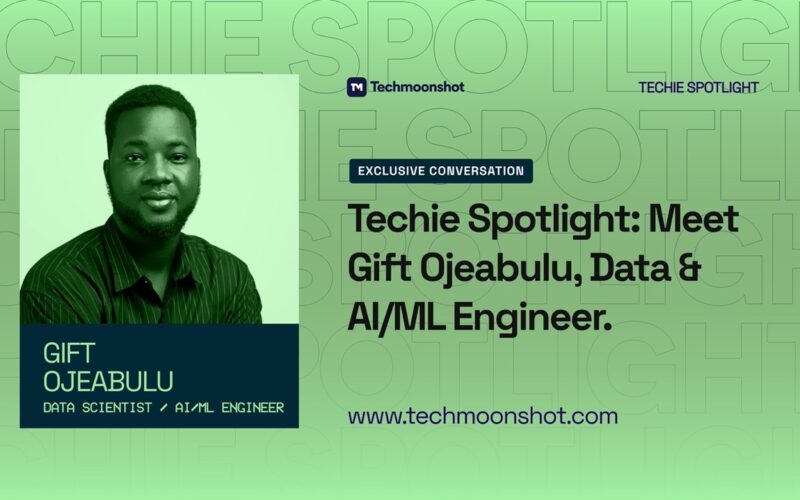
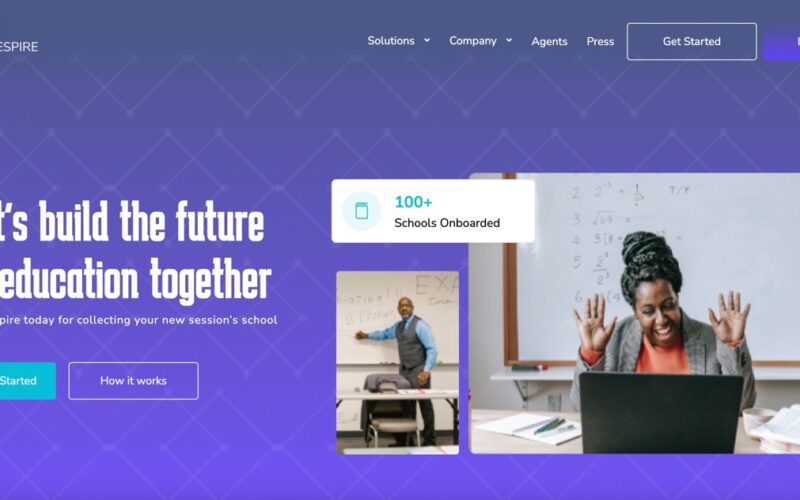
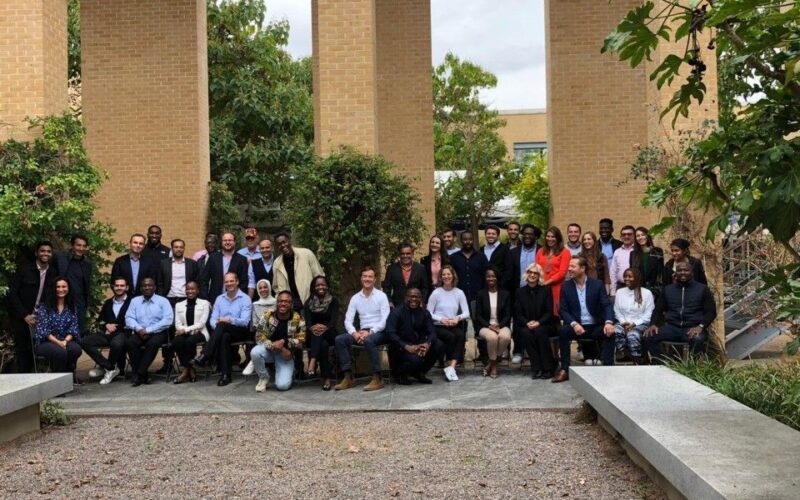

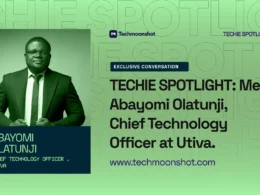
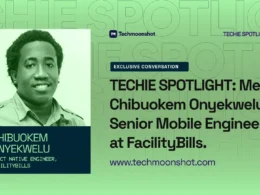
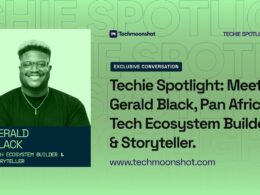
Comments 1